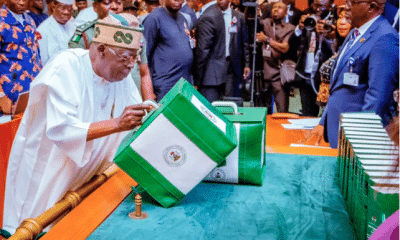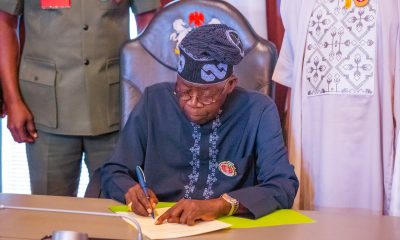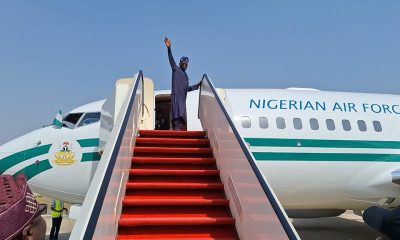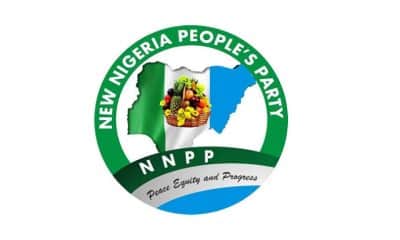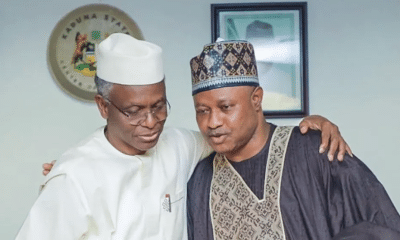Nigeria News
Lukman Urges Obasanjo, Babangida, And Gusau To Formulate Strategies Against APC For 2027 Elections
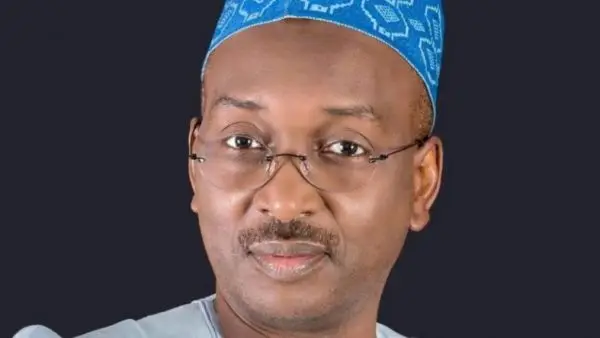
A former National Vice Chairman of the All Progressives Congress (APC) for the Northwest, Salihu Lukman, has called on former Presidents Olusegun Obasanjo and Ibrahim Babangida, along with retired General Aliyu Gusau, to devise innovative strategies aimed at displacing the APC from power in the 2027 elections.
Lukman emphasized that Nigeria is currently facing an existential crisis, stating that the nation’s democracy is in the “Intensive Care Unit” (ICU).
In a statement released on Tuesday in Abuja, Lukman responded to media reports regarding a meeting held on Sunday in Minna, Niger State, involving the trio.
He reflected on the recent National Council of State meeting, which took place on August 13, 2024, where a vote of confidence was passed on President Bola Tinubu.
Lukman speculated that the absence of Obasanjo and Babangida from that meeting might not have been coincidental and questioned whether their gathering in Minna signified a disagreement with the confidence vote given to Tinubu.
While acknowledging that the interventions of Obasanjo and Babangida may have contributed to the current challenges facing Nigeria, Lukman asserted that they have a responsibility to help steer the nation away from its precarious situation.
He urged them to leverage their influence and experience to reinvigorate the country’s democracy and create a more promising future for Nigerians.
Lukman said, “For instance, the political practices that are responsible for the erosion of political competition in political parties in Nigeria could be traceable to the tenure of former President Obasanjo. The policy of Structural Adjustment Programme (SAP) under former Military President Babangida could have been the source of inspiration for President Asiwaju Tinubu’s impulsive and unplanned policies. Although, to be fair to former Military President Babangida, to use Chidi Amuta’s words he ‘balanced compassion and hard policy choices.’
“To the extent of contributing to get Nigeria to the current messy situation, these leaders owe a responsibility to the nation to take it out of the ICU. Getting Nigerian democracy out of ICU is a function of ability to revive, restore and strengthen democratic structures in the country, which is dependent on ability to create at least a functional political party that would allow for political competition within its structures and by extension in the country. This should not just be about identifying and promoting a candidate who will emerge as a candidate in any of the registered parties. Once the approach is limited to producing a candidate, the potential of falling in a legal booby trap imposed by the manipulative activities of President Asiwaju Tinubu and APC is high. Part of the legal booby trap is that the potential candidate may be produced by a leadership faction of political party, which will throw the party and the candidate in court cases that will undermine electoral viability.
“The other challenge is that producing a candidate may not guarantee corresponding commitment by elected leaders to honour their campaigns promises and be accountable to Nigerians. For elected leaders to come with corresponding commitment to honour campaign promises and be accountable to Nigerians require the existence of a strong political party whose organs will meet as prescribed by the party’s constitution. Above all, the profile of the leadership of the party should be at the minimum equivalent to the elected leadership of the country. A situation whereby party leadership are below the profile of elected leaders is injurious to Nigerian democracy and will retain it in the ICU.
“Therefore, if former President Obasanjo, former Military President Babangida, former Head of State Abdulsalam and retired General Gusau are truly committed to rescuing Nigerian democracy and get it out of ICU, they should facilitate a deeper engagement of opposition political leaders in the country.”
Lukman also drew comparison between President Tinubu and late Head of State, General Sani Abacha, declaring that the latter was even more accessible.
“More than anytime in the history of Nigeria, citizens are being impoverished on an alarming scale. Since May 29, 2023 when President Asiwaju took over, it has been a downward slide for Nigerians. Being a democratic government, the expectation would have been that President Tinubu will be more accessible. Alas, he is proving to be the most inaccessible leader of Nigeria. Even late General Sani Abacha was by far more accessible. All previous military governments are turning out to be much more open to consultations and receptive to recommendations from Nigerians than the government of President Asiwaju Tinubu.
“As President of the Federal Republic, President Asiwaju Tinubu is showing his worst side. Some of the key projects of the last government have been abandoned. A good example is Kaduna – Abuja Road, which is becoming a death trap. But without any budgetary provision, a new project of more than N15 trillion Lagos – Calabar Coastal highway started. Meanwhile, public investment towards addressing the challenges of insecurity is at best business-as-usual. And the crisis of insecurity is reduced to ceremonial show of shame and public lamentations by leaders”, he stated.

